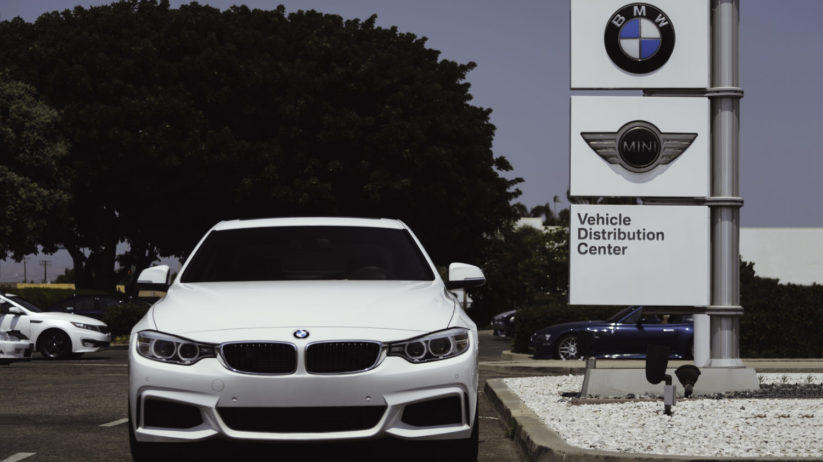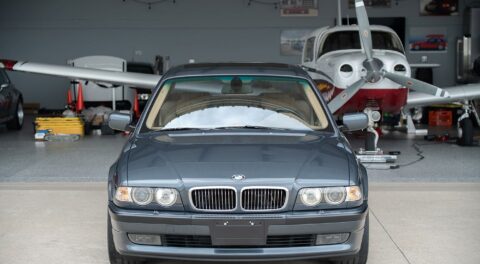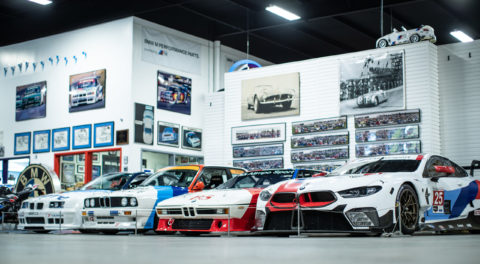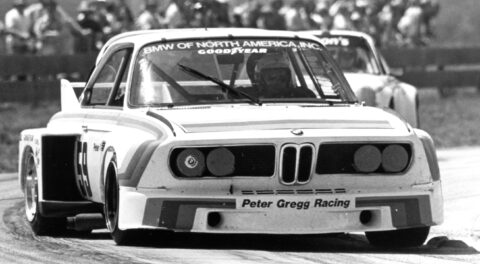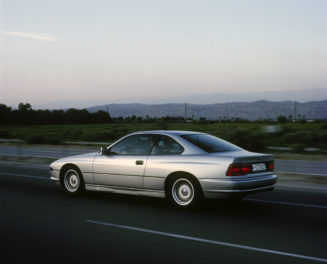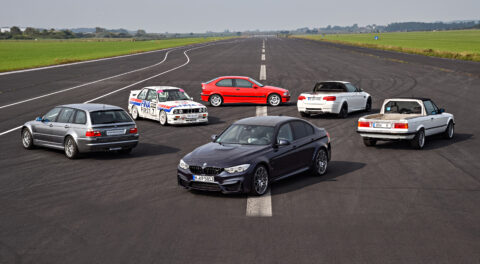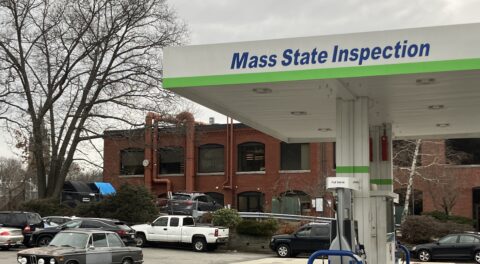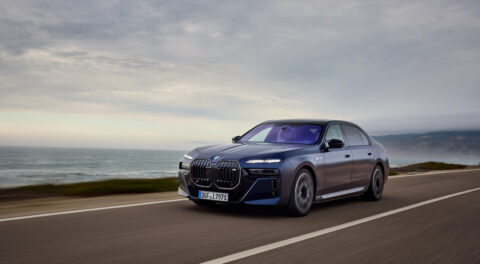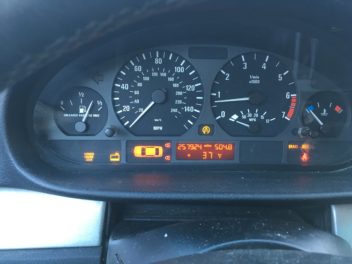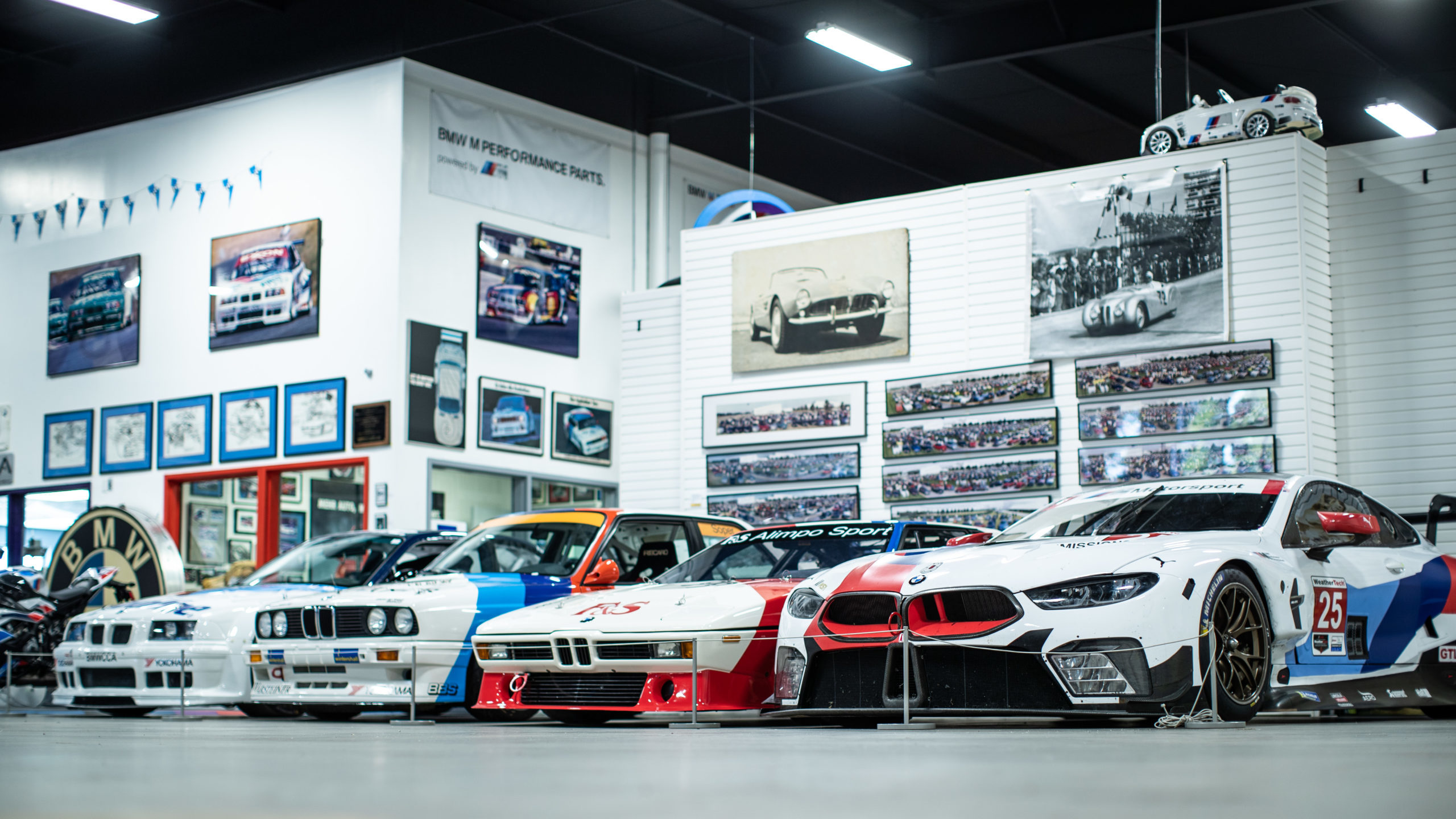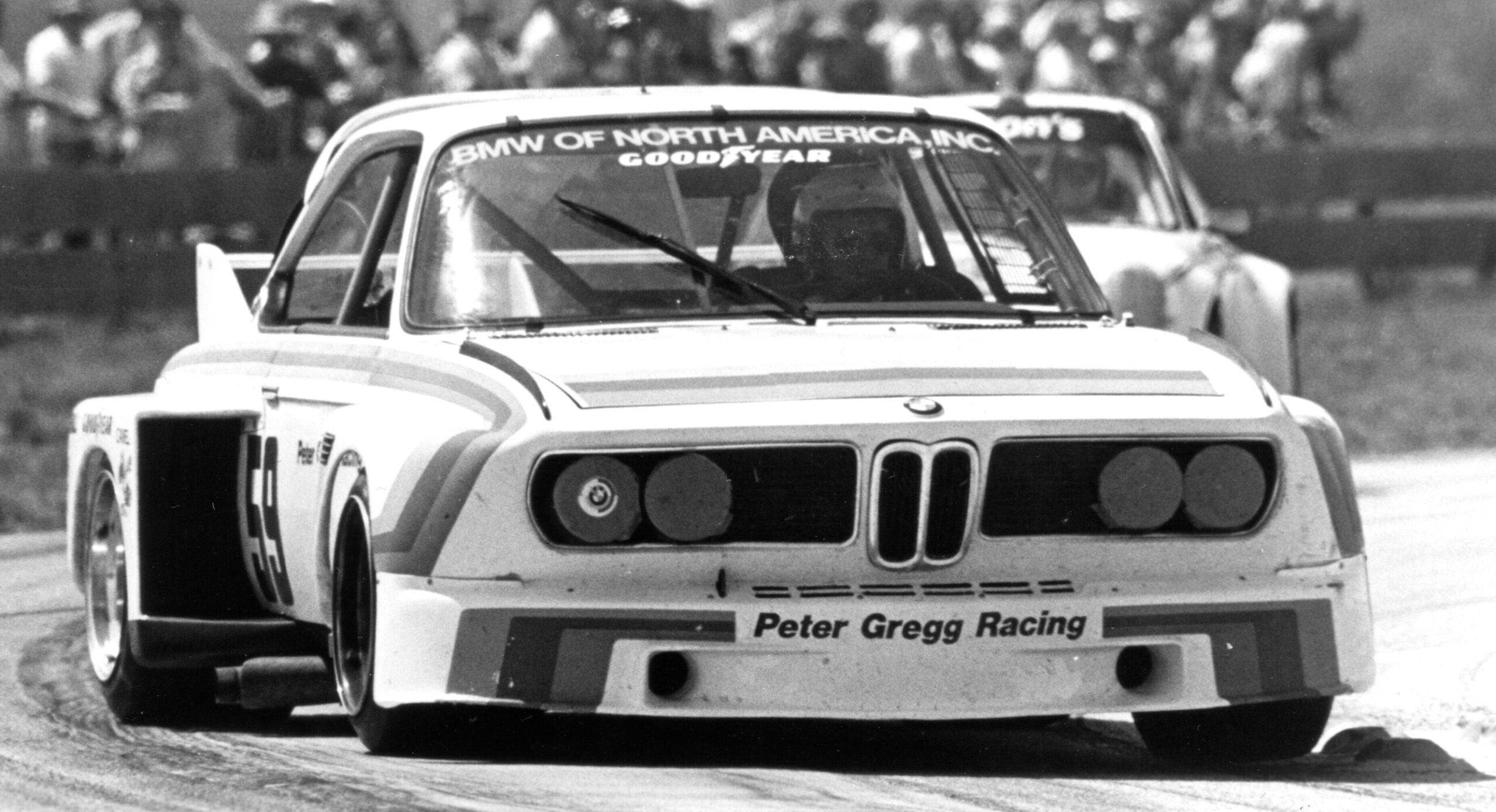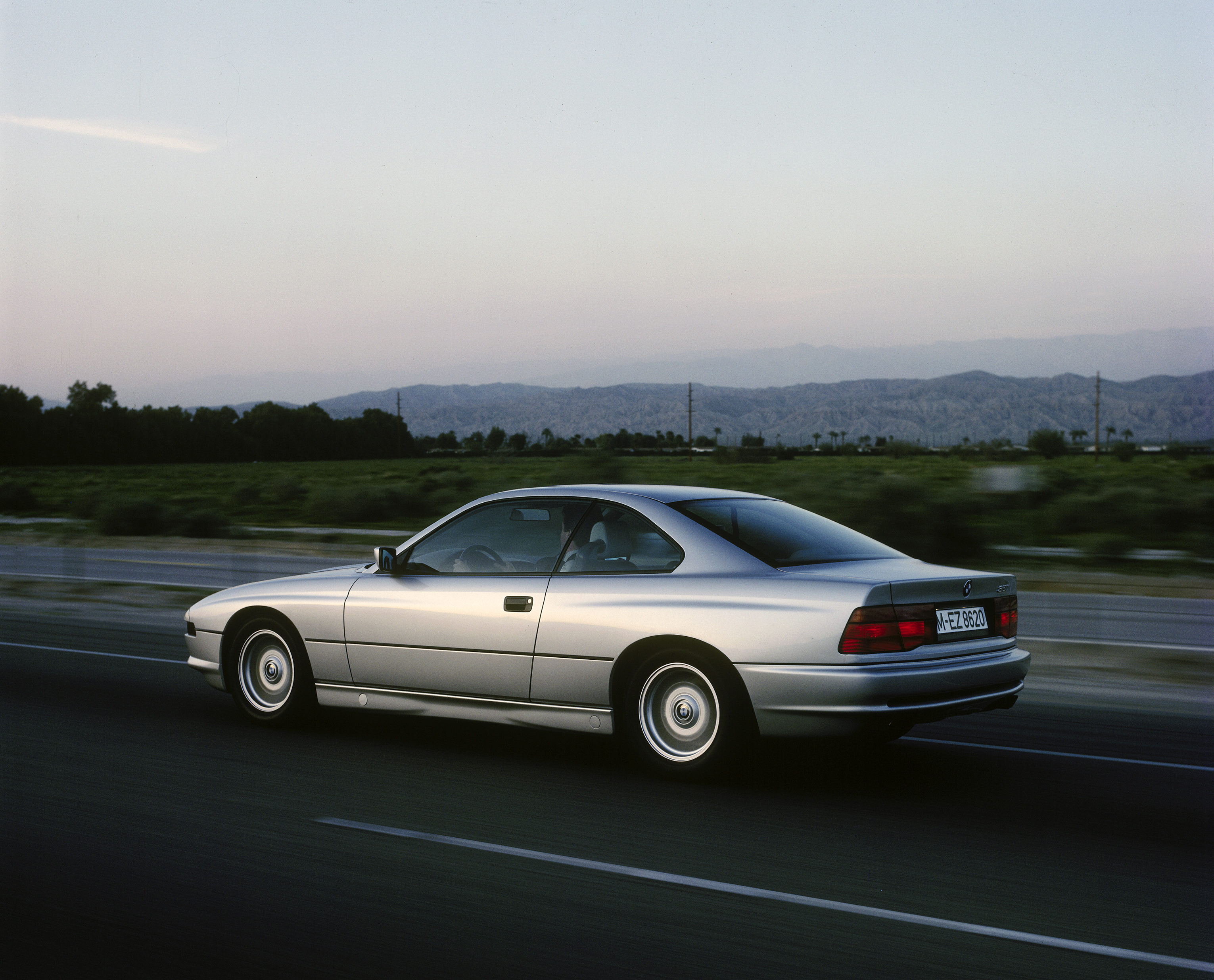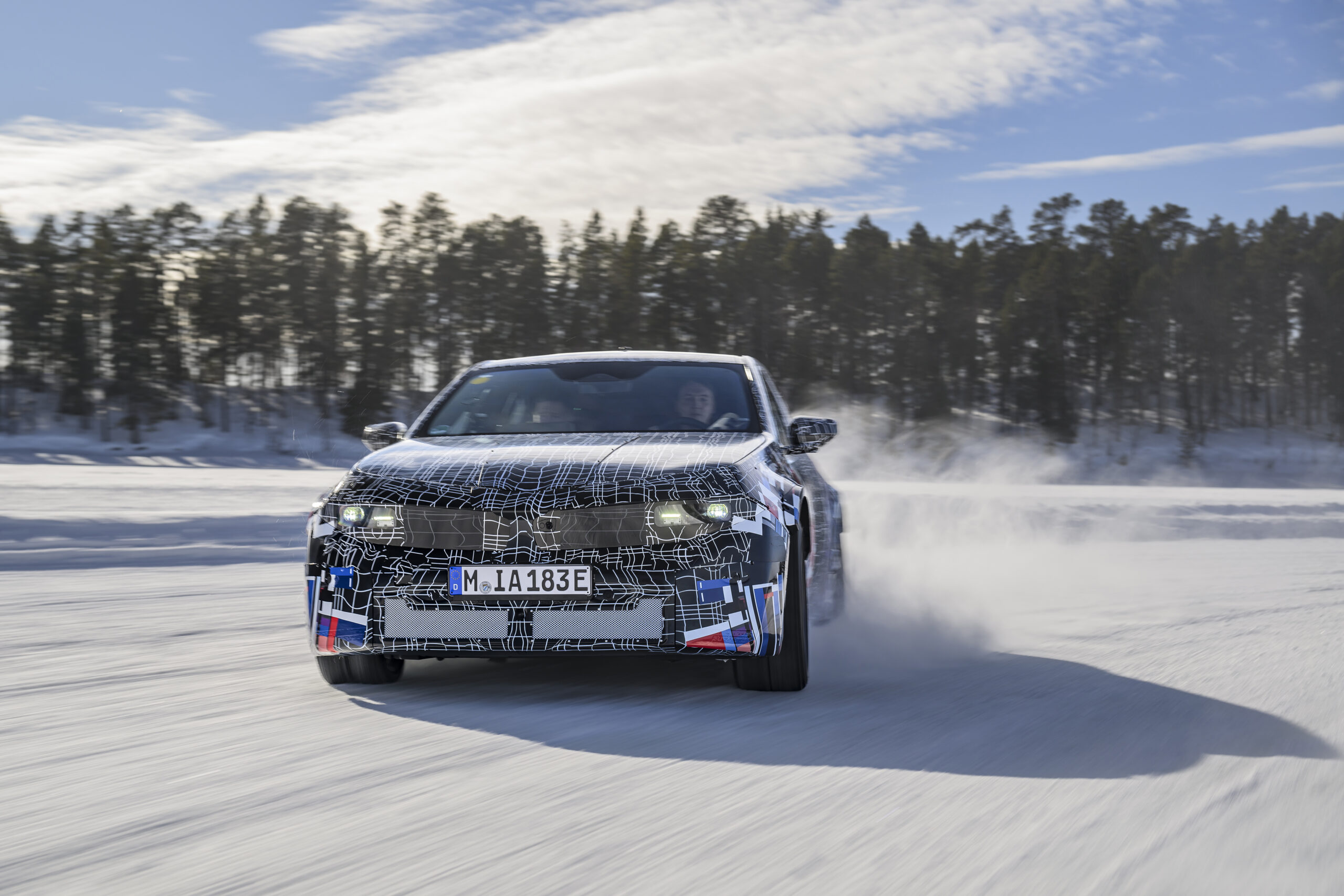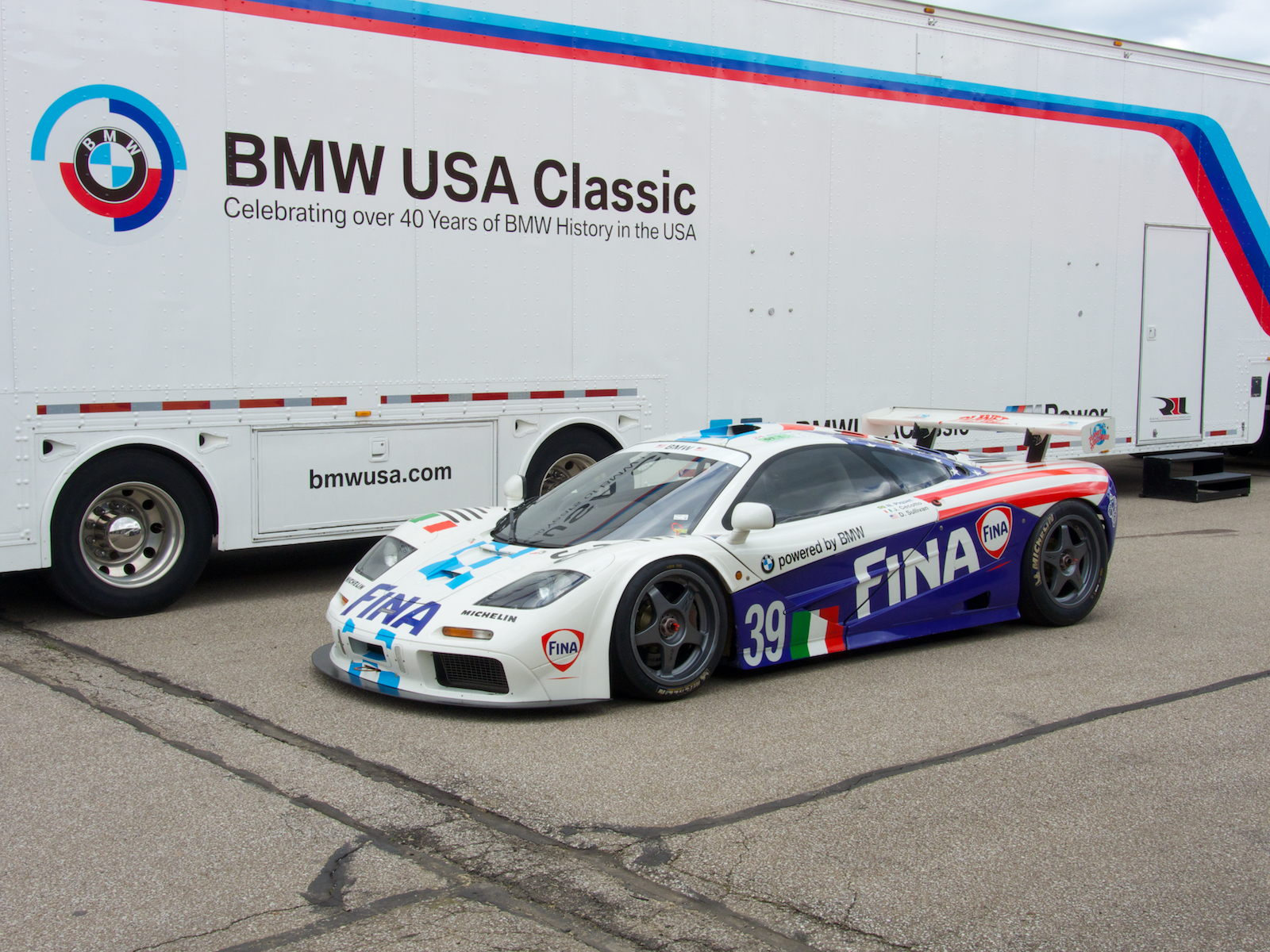It’s not uncommon for future BMW owners to track their special order from inception to delivery, and the marque is among the best when it comes to keeping customers informed of developments involved with the process. It’s not a new feature, either, as the tracking has been offered for nearly twenty years—but today more people than ever before seem interested in following the journey of their new cars.
The entire operation takes between three and four months to complete. While many are already well versed in how things work, a recent Los Angeles Chapter event allowed a unique opportunity to learn about and see behind-the-scenes goings-on at one of the most important stops along the way: the Vehicle Distribution Center (VDC).
BMW readily offers tours of its various manufacturing facilities around the world, but these sites are just one component of the automaker’s broad production, supply, and logistics network, which could serve as a textbook case study for business students of any level. But when it comes to the array of distribution centers, which make up one of the most important stops along the way for any BMW Group vehicle, specifically for special-order cars, the industry-leading auto manufacturer is more coy with the public. Every so often, though, the Los Angeles Chapter is lucky enough to receive a special tour of the Oxnard VDC, where some serious magic happens.
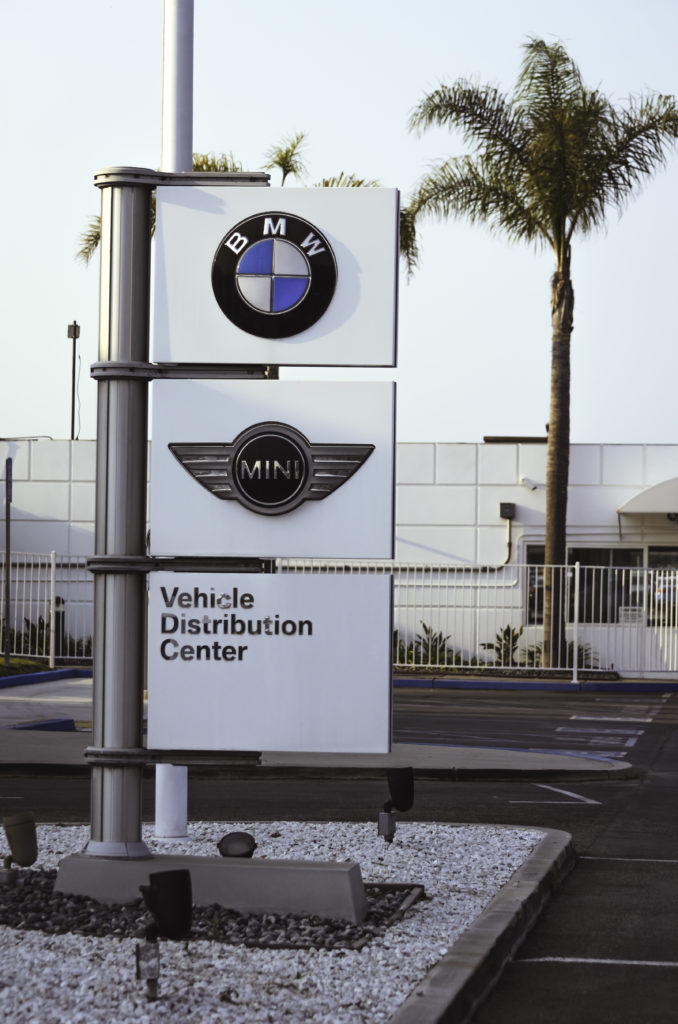
Summed up by longtime member and former San Diego Chapter president Dan Tackett, the VDC represents a “critical step between the factory and the dealership” that very few enthusiasts have the chance to see. The Oxnard facility is fed by Port Hueneme, the only deep water (or Panamax-capable) port that exists between Los Angeles and San Francisco. California is among the largest markets for BMW, rivaling a fair number of individual countries. While the rest of the U.S. is supplied by similar facilities in places like Jersey City, New Jersey and Brunswick, Georgia, two new sites have recently joined the ranks in the port of Baltimore, Maryland and Galveston, Texas—all of which work to serve the third largest market on earth for BMW behind continental Europe and China.
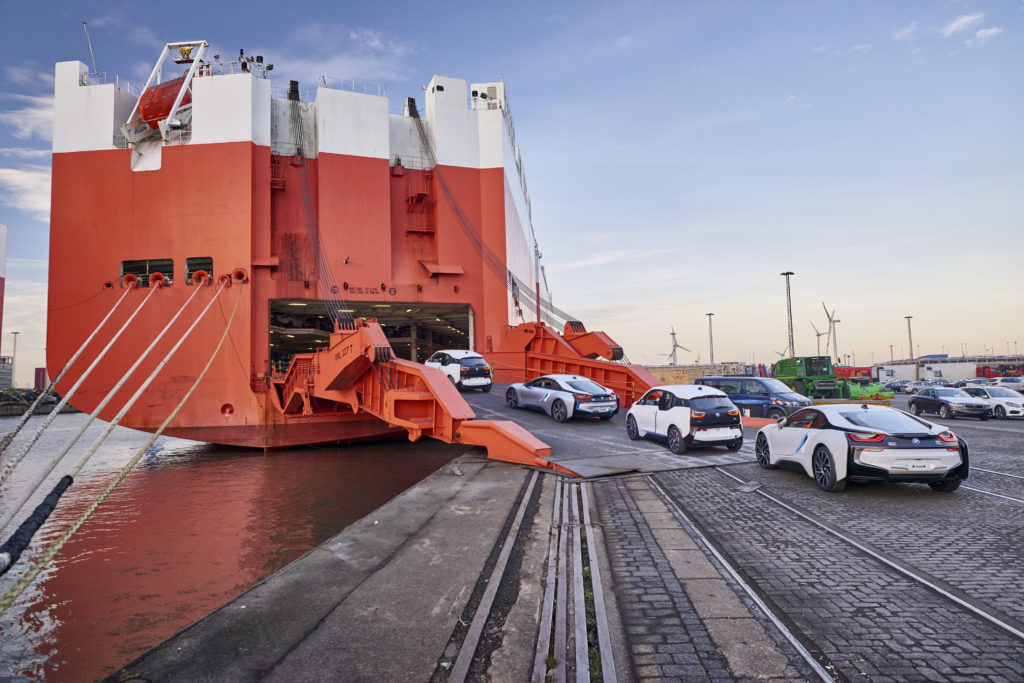
BMW i vehicles are loaded onto a roll-on/roll-off for departure from the German port town of Bremerhaven.
So how does it all work? On the surface, it’s quite simple: A BMW Group vehicle like a BMW, MINI, or Rolls-Royce leaves its final manufacturing facility in Europe (or England, in the case of Rolls), and is loaded onto an enclosed ocean-going vessel which then circumnavigates its way to Port Hueneme, California, a short drive up the Pacific Coast Highway from Santa Monica. Before the ship docks, a harbor pilot is transported to the ship and entrusted with mooring the large roll-on/roll-off auto transporter within the port. Next, local longshoremen are tasked with driving the vehicles off the vessel and into a preliminary parking area on the docks. Afterward, BMW North America employees drive the vehicles the short distance over to VDC Oxnard.
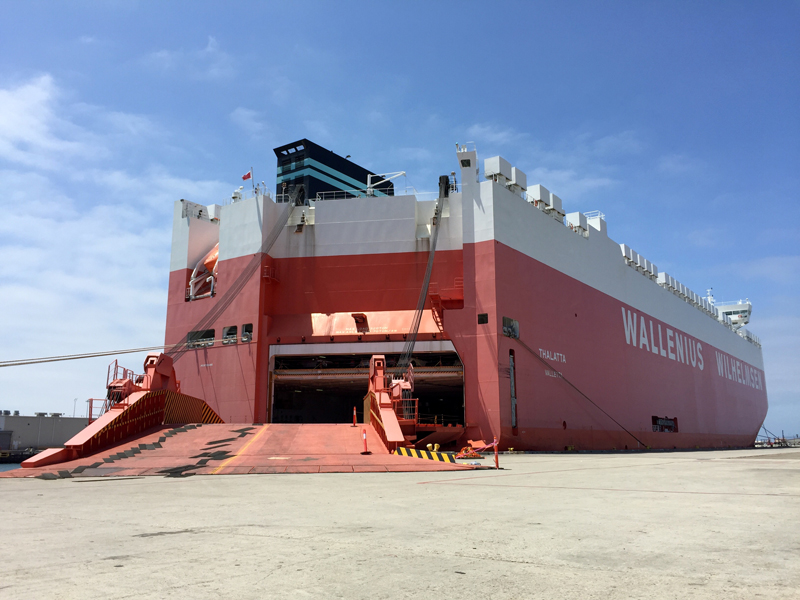
Upon arrival at the facility, the cars are once again parked in rows. Much like a BMW Group plant, where highly varied models and platforms can roll down the line in and among one another, the stacked queues of cars contain everything from a Rolls-Royce Phantom Drophead Coupe to base model Mini Cooper, with plenty of F80 M3s and a few M2 Competition coupes peppered throughout.
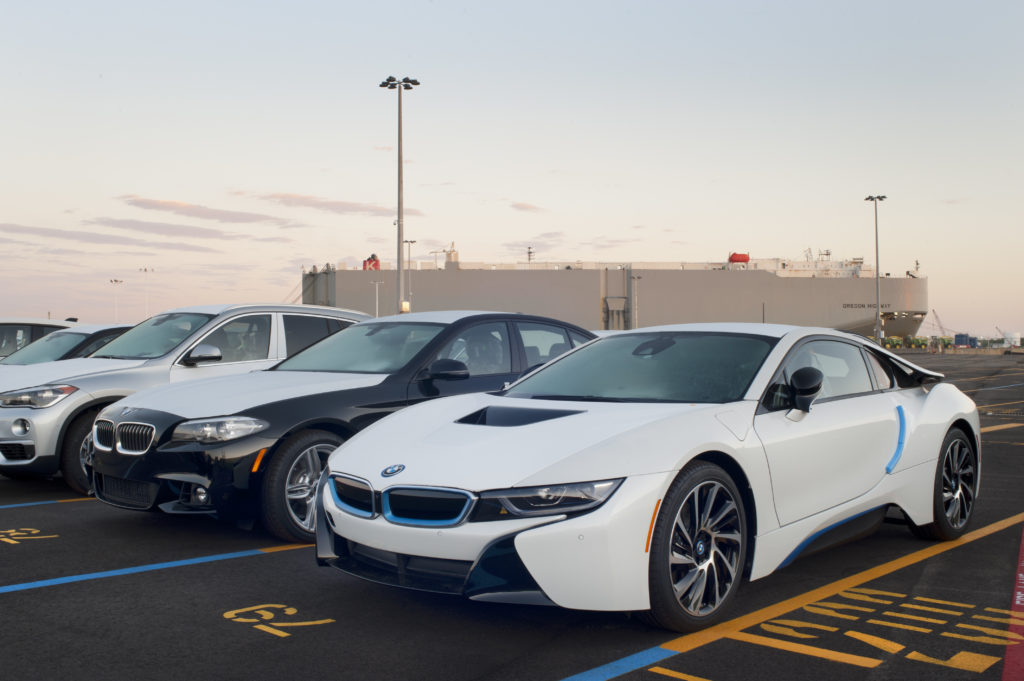
After waiting in line and having had some, but not all, of their protective film and other materials removed, the cars receive the real work . Vehicles are given a brief but thorough inspection, while things like manuals, miscellaneous documentation, and simple accessories such as first-aid kits are loaded in their appropriate places. The process obviously differs for special-order cars, which have their so-called “port- installed” options fitted here. In this part of the facility, you’ll find bins filled with plastic waste like brand-new kidney grilles which have been broken in preparation for destruction and recycling, after being replaced with an M Performance set. Things like splitters, carbon-fiber bits, and various other offerings of the BMW M Performance catalog are also installed, in addition to vinyl graphics and smaller additions like door-edge protection film.
With more than 7,000 vehicles at the VDC at any given time, you see very special cars in the mix, like an F31 M Sport wagon with the coveted track-handling package, along with others wearing BMW Individual colors and rare interior upholstery options. As usual, the model range remains varied throughout the facility, with an M3 CS sitting shoulder-to-shoulder with a 7 Series on one side and a MINI not far away.
But it’s not all what you might expect as far as inspections and options installations are concerned. It’s not exactly unusual for a vehicle to receive damage in one form or another during transport, and the BMW VDC is among the last lines of defense when it comes to correcting problems. Equipped with a full—and quite expansive—body shop and paint facility, extensive repairs can be carried out onsite. From full panel or bumper replacement to a respray of a scuffed area, work is performed in a multitude of bays and other stations, and the entire place is as clean and well-maintained as you might expect with plenty of demarcation, even for trash cans.
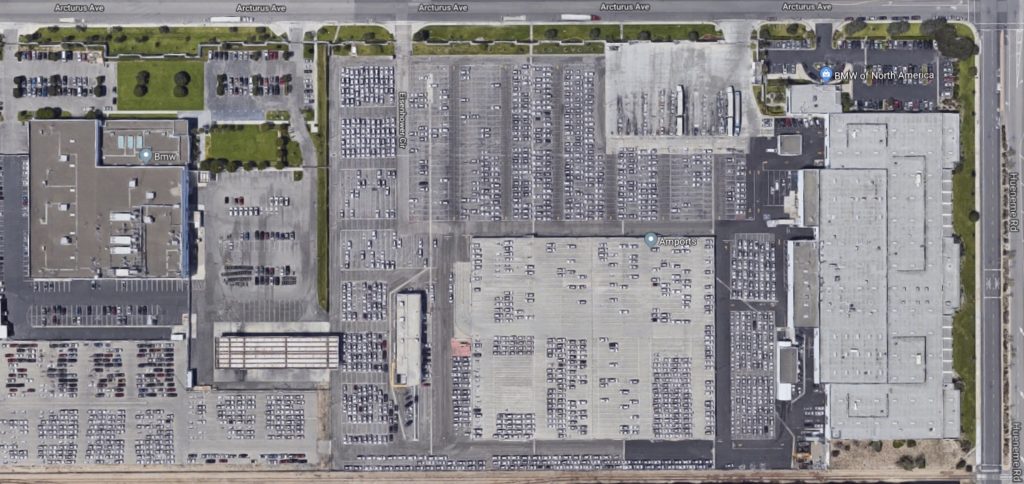
Taking things a step further on the correction-and-repair front, BMW VDC Oxnard kicked off what has become a highly successful training program with the construction of what’s referred as “the university” completed back in 2002. Working in conjunction with the BMW Certified Collision Repair Network, which recently announced a new expansion, the program trains candidates in a wide array of repair techniques, preparing them to work at a facility within the network. Paintless dent repair, general bodywork, and large resprays are all on the curriculum, and students also learn advanced techniques involved with repairing the carbon substructure of an i3 and full disassembly and reassembly of the body of an i8. We were fortunate enough to see one of the F80 M3’s used at the BMW Performance Center West located in Thermal, California after it had been repaired.
Among the final steps before departing the facility are coding and programming. We were served lunch in this area, but many of our tables were situated safely below an array of stations that included bundled connections for power and vehicle interfaces.
After work is complete within the main building—no, we were not allowed to take any photos—the vehicles are once again queued up for loading onto car haulers that range from the full nine-car-capacity semis to the smaller four-to-six-car configuration towed by full-size diesel pickups. Even on a Saturday, when the facility had a reduced staff with more tour guides and chaperones around than anyone else, a steady stream of eighteen-wheelers were departing, each loaded to capacity with new BMWs and MINIs, while a few enclosed trailers for the range-topping i8 roadster and bespoke Rolls-Royce offerings were also on site. The next stop is, of course, the dealership and then your garage.
If it sounds like a lot of sitting around and waiting, you might be surprised to learn that throughput is quite high, with a vehicle taking an average of just 45 minutes to move through the site—just-in-time logistics play a large role in maintaining capacity.
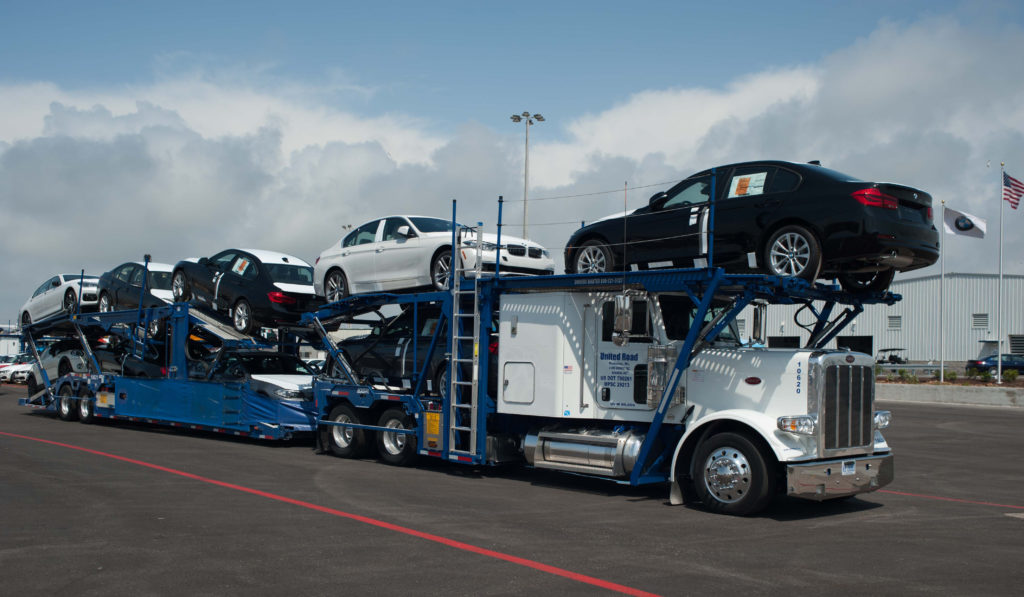
This latest tour saw more than 100 BMW CCA members and their guests in attendance, with a healthy number of people having traveled a significant distance from San Diego and the Bay Area to check things out. The onsite staff, including tour guides, presenters, and chaperones, were all incredibly welcoming and excited to share details about their work at the VDC, which clearly involves a lot of passion from a myriad of individuals. Most important, we’d like to thank general manager Al Cardona for his generosity and hospitality, along with acting as a great emcee and game-show trivia host; prizes included a BMW bike, along with a number of other lifestyle accessories and clothing items.
At the end of the day, many members and their friends left BMW VDC Oxnard with a new perspective and appreciation of the automaker’s global manufacturing and production prowess, and the immense level of care and attention each and every vehicle receives.—Alex Tock
[Photos courtesy San Diego Chapter member, local automotive and motorsport photographer Travis Sterne, BMW AG.]

